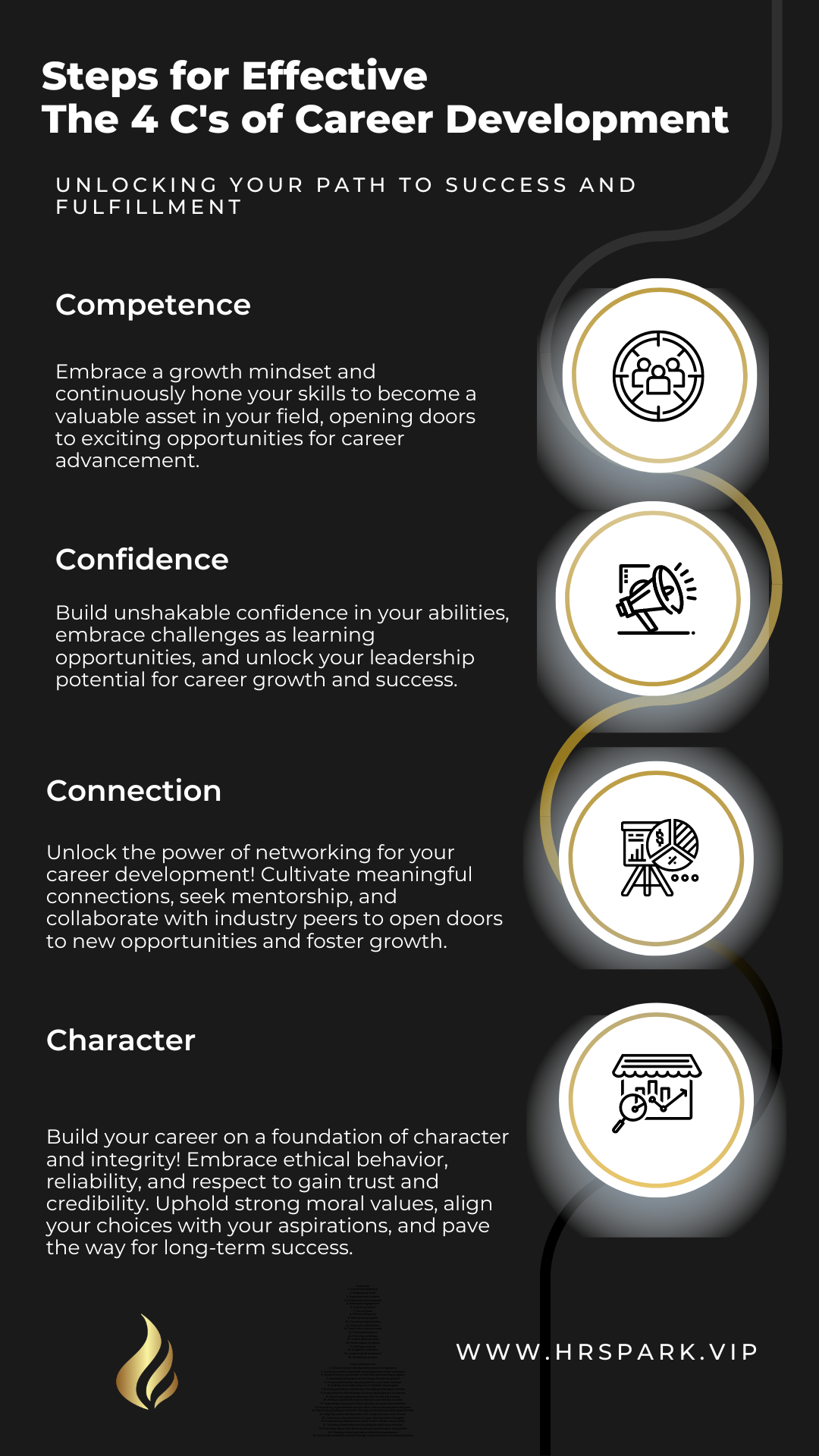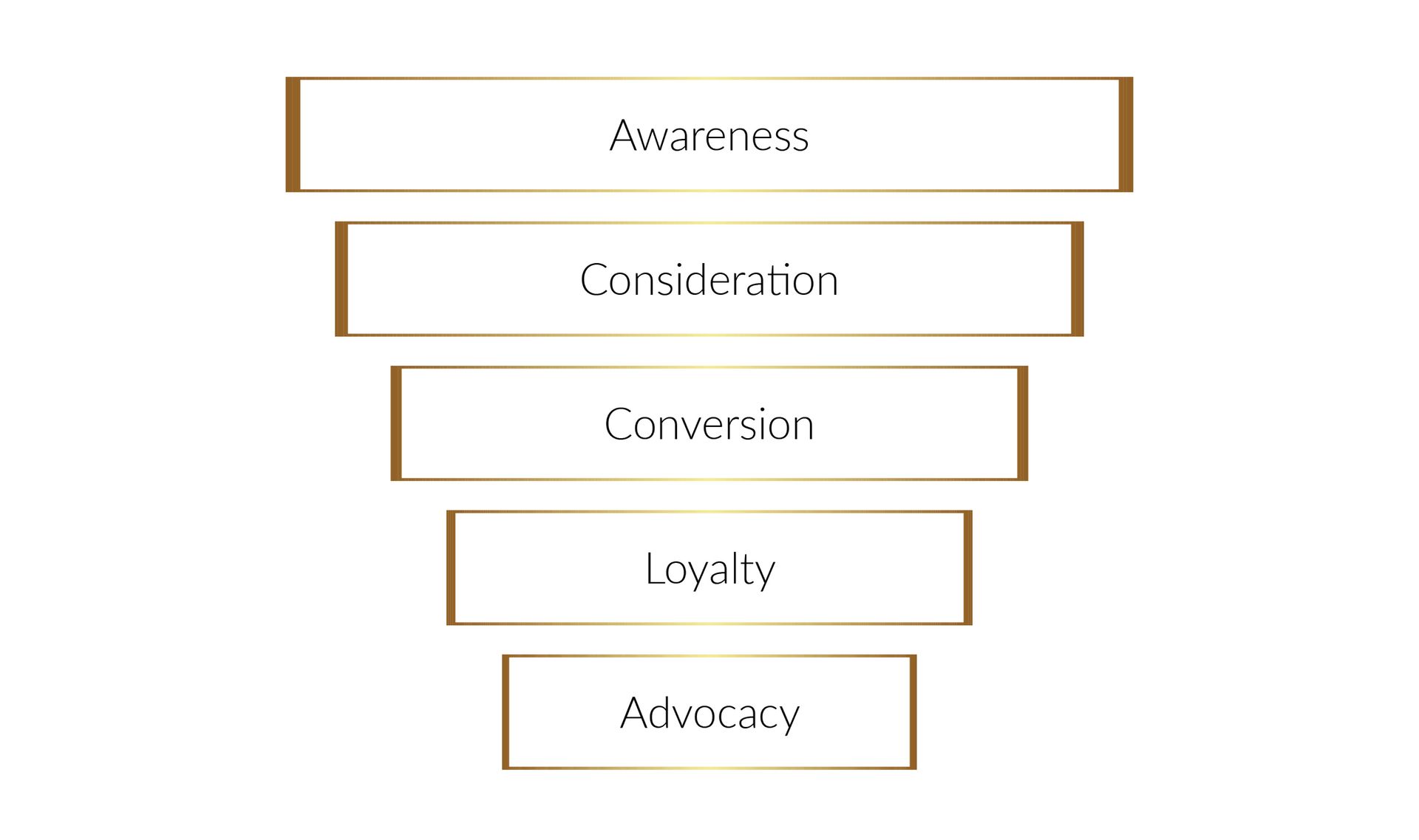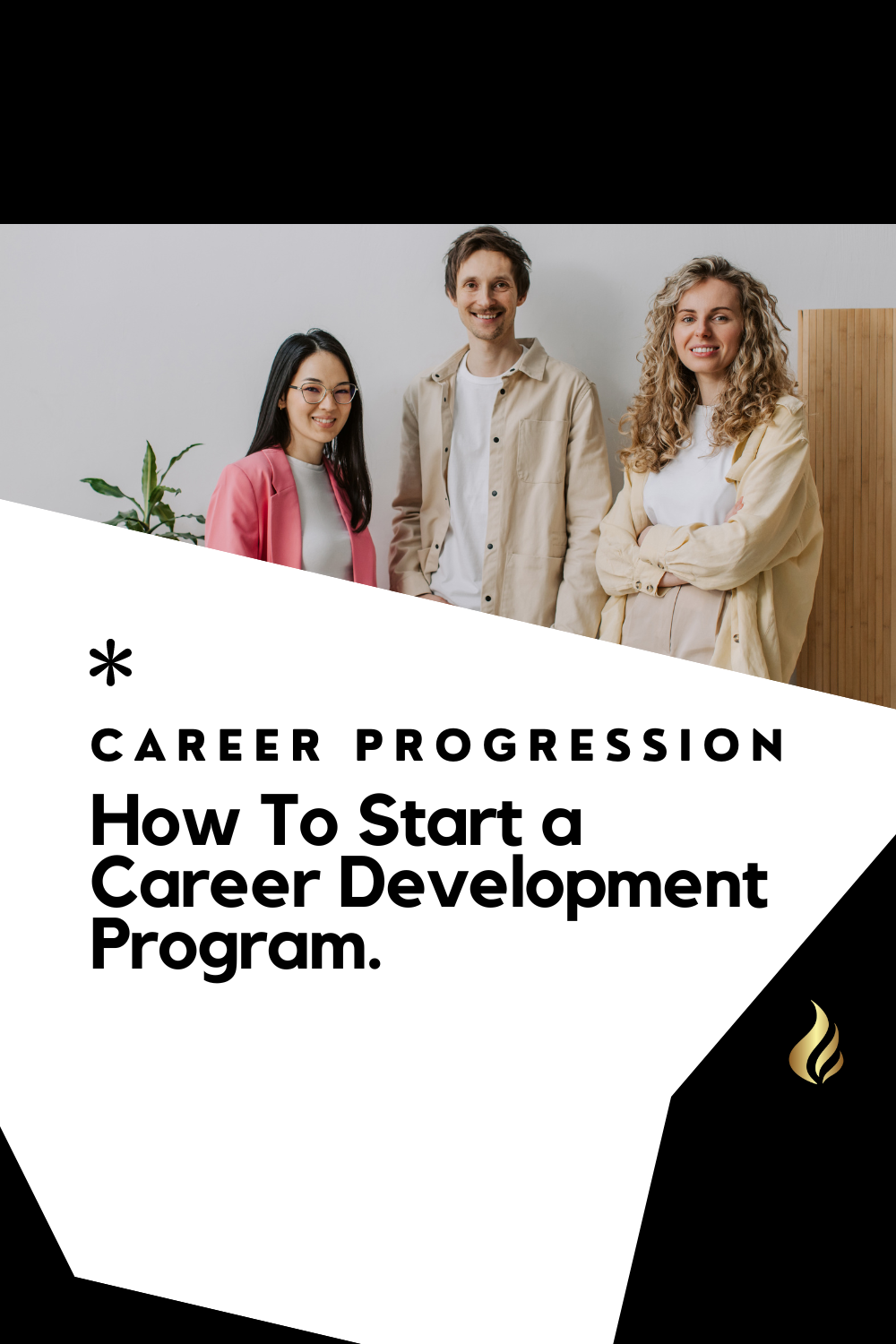Navigating Career Development: A Comprehensive Guide
Unlocking Your Path to Success: The Journey of Career Development

Embarking on a fulfilling and successful career journey is a universal aspiration shared by professionals across all industries. Whether you're just starting out in the job market or looking to advance your current career, the concept of career development plays a crucial role in shaping your path to success. Career development isn't just about climbing the corporate ladder; it's a holistic approach that encompasses skill-building, goal-setting, networking, continuous learning, and maintaining a healthy work-life balance.
In this comprehensive guide to career development, we will explore the key components that contribute to a well-rounded and prosperous career. From understanding the five fundamental areas of career development to crafting an effective career development plan, we'll equip you with the knowledge and tools necessary to navigate your professional growth confidently.
For employers and organizations, fostering a culture of career development is equally vital. We'll also delve into how to start a career development program within your company to empower your employees, boost productivity, and foster a sense of loyalty and engagement.
Join us on this journey as we uncover the secrets to unlocking your full potential, finding fulfillment in your chosen profession, and making strategic strides towards a future that aligns with your aspirations. Let's embark on this adventure of self-discovery and empowerment, where career development becomes a cornerstone for personal and professional excellence.
What Are The Five Areas of Career Development?
In today's dynamic and competitive job market, the concept of career development goes beyond merely acquiring a job or moving up the corporate ladder. It encompasses a diverse set of components that collectively contribute to a fulfilling and successful career. Understanding and investing in these five crucial areas of career development will not only enhance your professional growth but also pave the way for personal satisfaction and self-fulfillment.
Skill Development:
One of the cornerstones of career development is continuous skill enhancement. As industries evolve and job roles change, staying relevant and adaptable is essential. Identifying your strengths and weaknesses and actively seeking opportunities to upskill and reskill will make you a valuable asset in any workplace. Embracing learning experiences, attending workshops, enrolling in courses, and seeking out challenging projects will help you cultivate a diverse skill set that aligns with your career aspirations.
Goal Setting and Planning:
Setting clear and achievable career goals is crucial for steering your professional trajectory. By defining both short-term and long-term objectives, you create a roadmap that guides your actions and decisions. A well-thought-out career plan enables you to stay focused, motivated, and proactive in pursuing opportunities that align with your aspirations. Regularly evaluating your progress and adjusting your goals as needed ensures that you stay on track towards your vision of success.
Networking and Relationship Building:
The value of networking and building meaningful relationships cannot be overstated in career development. Establishing connections within your industry, engaging with colleagues, mentors, and potential employers opens doors to new opportunities and insights. A robust professional network can provide support, mentorship, and even lead to potential job offers. Active participation in industry events, conferences, and online communities can significantly expand your network and broaden your horizons.
Continuous Learning and Education:
In a fast-paced and ever-changing world, learning should be a lifelong pursuit. Embrace a growth mindset and prioritize continuous education beyond formal schooling. Engaging in self-study, reading industry-related publications, and participating in webinars or online courses keep you updated with the latest trends and developments in your field. Remaining intellectually curious and adaptable will position you as a proactive and sought-after professional.
Work-Life Balance and Wellbeing:
Achieving career success doesn't have to come at the cost of personal wellbeing. Recognizing the importance of maintaining a healthy work-life balance is essential for sustainable growth. Nurturing your physical and mental health, setting boundaries, and making time for hobbies and activities you enjoy fosters overall well-being and enhances productivity. A balanced and fulfilled life outside of work complements your professional development and contributes to long-term career satisfaction.
Incorporating these five key areas of career development into your professional journey will set you on a path of continuous growth and fulfillment. Whether you are an entry-level employee, a mid-career professional, or a seasoned expert, investing in your career development is an investment in your future success and personal happiness. In the subsequent sections, we will explore how to kickstart a career development program and create an effective career development plan to set you on the path to greatness.
How To Start a Career Development Program
A thriving career development program is not only advantageous for individual professionals but also holds immense value for employers and organizations. It fosters a culture of growth and engagement, enhances employee satisfaction and retention, and ultimately contributes to the overall success of the company. If you're an employer or HR professional looking to implement a career development program within your organization, here's a step-by-step guide to get you started:
Assessing Organizational Needs and Goals:
Before launching a career development program, it's crucial to understand the specific needs and goals of your organization. Conduct surveys, interviews, and assessments to gather insights from employees about their career aspirations, skill gaps, and areas where they seek professional development. Align the program's objectives with the company's vision and mission to ensure it complements the overall organizational strategy.
Identifying Employee Aspirations and Skill Gaps:
Each employee's career journey is unique, and understanding their individual aspirations is vital for tailoring a successful development program. Conduct one-on-one meetings to discuss career goals, strengths, and areas for improvement. Identify skill gaps that need to be addressed to help employees progress in their careers.
Creating Customized Career Development Plans:
Based on the assessments and individual discussions, work with employees to create personalized career development plans. These plans should outline specific short-term and long-term goals, along with actionable steps to achieve them. Consider incorporating a mix of on-the-job training, workshops, mentoring, and external courses to provide a well-rounded development experience.
Setting Up Mentorship and Coaching Opportunities:
Establishing mentorship and coaching programs can be a powerful aspect of a career development initiative. Pair employees with experienced mentors who can guide and support them in their professional journey. Encourage regular feedback sessions and opportunities for employees to seek advice from their mentors or coaches.
Evaluating and Revising the Program for Continuous Improvement:
The success of a career development program lies in its adaptability and continuous improvement. Regularly assess the program's effectiveness and gather feedback from participants to identify areas of improvement. Be open to making necessary adjustments to ensure the program remains relevant and valuable to employees at all career stages.
By implementing a robust career development program, organizations can foster a culture of learning and growth, nurture employee potential, and create a loyal and motivated workforce. Employees, in turn, benefit from the opportunities to enhance their skills, clarify their career goals, and receive the support needed to excel in their chosen paths.
Remember, a career development program is not a one-size-fits-all solution; it should be designed with the specific needs and objectives of your organization and its workforce in mind. With a well-structured and comprehensive program in place, both employers and employees can reap the rewards of a more fulfilling and successful professional journey. In the next section, we will delve into crafting an effective career development plan for individual professionals to help them achieve their aspirations.
Crafting an Effective Career Development Plan
Creating a well-defined career development plan is a critical step for individual professionals seeking to advance their careers, achieve their goals, and continuously grow in their chosen fields. A comprehensive career development plan acts as a roadmap, guiding you towards success and ensuring that you remain focused and motivated throughout your professional journey. Here are the key steps to crafting an effective career development plan:
Self-Assessment and Identifying Strengths and Weaknesses:
Begin by conducting a thorough self-assessment to gain insights into your skills, interests, values, and personality traits. Recognize your strengths and acknowledge areas where you need improvement. Understanding your unique attributes will help you align your career choices with your strengths and passions, setting the stage for a fulfilling and rewarding career.
Setting Short-Term and Long-Term Career Goals:
Define clear and achievable career goals that encompass both short-term and long-term objectives. Short-term goals may include mastering specific skills or obtaining certifications, while long-term goals could involve reaching specific job positions or making a career transition. Ensure that your goals are specific, measurable, attainable, relevant, and time-bound (SMART) to provide a clear sense of direction.
Creating an Actionable Plan with Specific Milestones:
Develop a step-by-step action plan that outlines the actions you need to take to achieve your career goals. Break down your long-term goals into smaller, manageable milestones. Assign deadlines to each milestone, allowing you to track your progress and make adjustments as needed. Flexibility is essential, as circumstances and opportunities may change along the way.
Identifying Resources and Opportunities for Skill Enhancement:
Research and identify resources that will support your skill development and career advancement. This may include enrolling in workshops, attending seminars, pursuing advanced degrees, or seeking online courses relevant to your field. Look for professional associations, networking events, and conferences that offer opportunities to learn from industry experts and connect with like-minded professionals.
Integrating Work-Life Balance into the Plan:
A well-rounded career development plan should consider work-life balance and personal well-being. Understand the importance of taking care of your physical and mental health to sustain long-term career success. Allocate time for hobbies, family, and personal growth to maintain a healthy balance between work and life.
Embracing a Growth Mindset:
Cultivate a growth mindset, which involves believing in your ability to develop and improve over time through dedication and hard work. Embrace challenges and view setbacks as opportunities for learning and growth. A positive mindset will empower you to persevere during challenging times and propel you towards your career goals.
Seeking Mentorship and Guidance:
Seek out mentors or coaches who can provide valuable insights, guidance, and support in your career development journey. A mentor can offer valuable advice based on their own experiences, helping you navigate obstacles and make informed decisions. Building a strong support network can provide encouragement and motivation to excel in your chosen path.
Remember that a career development plan is a dynamic document that should be regularly reviewed and adjusted to align with your evolving goals and aspirations. Stay open to new opportunities and be willing to adapt your plan as your career progresses. With a well-crafted career development plan in place, you will be well-equipped to seize opportunities, overcome challenges, and create a fulfilling and successful professional future.
Real-Life Example of Career Development
To gain a better understanding of how a well-executed career development plan can lead to remarkable achievements, let's explore the inspiring journey of Sarah, a marketing professional who transformed her career through strategic planning and dedication.
Initial Assessment and Goal Setting:
Sarah began her career as an entry-level marketing coordinator in a small firm. Recognizing the need for personal growth and advancement, she conducted a thorough self-assessment to identify her strengths in creative content creation and digital marketing. She set ambitious goals for herself, aiming to become a marketing manager within five years.
Career Development Plan:
Armed with her goals, Sarah created a detailed career development plan. She enrolled in online courses to gain expertise in SEO and social media marketing. She attended industry conferences and networking events, building valuable connections with seasoned marketers. Sarah also sought guidance from a marketing veteran who agreed to mentor her on her journey.
Milestones and Achievements:
Within a year, Sarah's dedication and newfound skills caught the attention of her superiors, leading to a promotion to a marketing specialist role. She continued to surpass milestones in her career development plan, securing certifications in content marketing and data analysis. Her mentor provided valuable insights and advice, boosting her confidence and encouraging her to aim higher.
Embracing Challenges and Growth:
Sarah encountered challenges along the way, particularly when assigned to lead a major marketing campaign. Instead of shying away, she embraced the opportunity, applying her new skills and seeking input from her mentor. Despite initial setbacks, the campaign's success earned her recognition and a promotion to marketing manager, fulfilling her five-year goal in just three years.
Continuous Learning and Adaptation:
Rather than resting on her laurels, Sarah understood the importance of continuous growth. She remained open to learning and adapting to industry trends. Her career development plan evolved to include management training and leadership courses, preparing her for future opportunities.
Career Transformation:
Sarah's dedication and hard work did not go unnoticed. Her reputation as an innovative and effective marketing leader grew, and she was headhunted by a large multinational corporation. The company recognized her potential and offered her a role as the head of marketing for a new product line.
Impact and Fulfillment:
Today, Sarah leads a thriving marketing team, overseeing successful campaigns and driving substantial revenue growth for her company. Her career development journey not only transformed her professional life but also brought her a deep sense of fulfillment and pride in her achievements.
Sarah's story exemplifies the power of a well-crafted career development plan, fueled by determination, continuous learning, and the guidance of a mentor. Through strategic goal setting, skill enhancement, and embracing opportunities, she not only achieved her career objectives but also exceeded them. Her inspiring journey serves as a testament to the transformative impact of a thoughtful and proactive approach to career development.
As you embark on your own career development journey, remember that with dedication, perseverance, and a clear plan, you too can realize your dreams and create a meaningful and successful career path. Embrace the possibilities that lie ahead, and let your career development plan be the catalyst that propels you to extraordinary heights.

Tools and Resources for Career Development
Embarking on a journey of career development requires access to valuable tools, resources, and opportunities that facilitate skill enhancement, knowledge acquisition, and networking. In this section, we'll explore a range of resources that professionals can utilize to accelerate their career growth and personal development:
Online Learning Platforms:
Take advantage of online learning platforms such as Coursera, Udemy, LinkedIn Learning, and Skillshare. These platforms offer a vast array of courses and tutorials, spanning various disciplines, including technical skills, leadership development, communication, and more. Many of these courses come with certifications that can enhance your resume and demonstrate your commitment to continuous learning.
Professional Associations and Networking Events:
Join industry-specific professional associations and attend networking events to expand your professional network. These platforms provide opportunities to interact with industry leaders, gain insights into emerging trends, and build connections that can lead to potential job opportunities and mentorship.
Mentorship Programs:
Seek out formal or informal mentorship programs within your organization or professional community. Having a mentor can offer guidance, support, and valuable career advice, propelling you toward your goals with the wisdom of someone who has navigated similar paths.
Industry Conferences and Seminars:
Participate in industry conferences, seminars, and workshops to stay updated on the latest developments, best practices, and emerging technologies within your field. These events also provide excellent networking opportunities and exposure to experts in your industry.
Books and Publications:
Read books authored by renowned professionals in your field and industry-related publications. Books can provide in-depth insights, strategies, and valuable lessons from successful individuals who have achieved notable accomplishments in their careers.
Career Coaching Services:
Consider engaging the services of a career coach to receive personalized guidance and support in crafting and implementing your career development plan. A career coach can help you clarify your goals, overcome challenges, and create a roadmap for success.
LinkedIn and Online Communities:
Utilize LinkedIn to build a strong professional presence, showcase your skills, and connect with other professionals and recruiters. Engage in relevant LinkedIn groups and other online communities dedicated to your industry to participate in discussions, share knowledge, and stay informed about industry trends.
Internal Training and Development Programs:
Check if your current employer offers internal training and development programs. These programs often provide employees with opportunities for skill-building, leadership development, and career advancement within the organization.
Industry Certifications:
Pursue industry-recognized certifications that align with your career goals. Certifications can enhance your expertise and marketability in specific areas, making you a standout candidate for job opportunities.
Remember that while these tools and resources are valuable, their true impact lies in your willingness to proactively engage with them. Stay committed to lifelong learning, professional growth, and building meaningful connections throughout your career journey. By leveraging these resources effectively, you will position yourself for continuous success and fulfillment in your chosen profession.

A Lifelong Journey of Career Development
Career development is not a one-time endeavor but a lifelong journey of growth, learning, and self-discovery. As you progress in your career, new opportunities and challenges will arise, and your aspirations may evolve. In this final section, we'll explore the importance of adaptability, continuous learning, and the evolving nature of career development:
Embracing Adaptability:
The world of work is constantly evolving, driven by technological advancements, economic shifts, and changing market demands. Embracing adaptability is essential to thrive in this dynamic environment. Stay open to new experiences, remain flexible in your career choices, and be willing to acquire new skills as industries transform. Embracing change allows you to remain relevant and seize emerging opportunities.
The Power of Multiple Mentors:
As your career progresses, consider seeking guidance from multiple mentors who can provide diverse perspectives and insights. Each mentor can offer valuable advice based on their unique experiences and expertise. Expanding your mentorship network allows you to benefit from a broader range of knowledge and mentorship styles.
Recognizing Saturation Points:
At various stages of your career, you may reach a point of saturation in your current role or industry. Recognize when you've maximized your growth in a particular position and be open to exploring new horizons. Transitions to different industries or roles can present exciting challenges and fresh opportunities for professional development.
Continuing Education and Upskilling:
Commit to lifelong learning and upskilling to remain competitive in your field. Stay informed about the latest industry trends and advancements and invest in continuous education to stay ahead of the curve. Professional certifications, workshops, and short courses can equip you with cutting-edge knowledge and skills.
Balancing Aspirations and Achievements:
Revisit your career development plan periodically and reflect on your achievements. Celebrate your successes, both big and small, and take pride in your progress. Balance your aspirations with the recognition of how far you've come, and use this perspective to fuel your motivation for future endeavors.
Giving Back Through Mentorship:
As you grow in your career, consider paying it forward by becoming a mentor yourself. Mentoring others not only benefits their professional development but also reinforces your own understanding and expertise. Being a mentor allows you to reflect on your own journey and provide valuable guidance to aspiring professionals.
Embracing Lifelong Growth:
The journey of career development is not just about reaching a destination but embracing the growth and learning that occurs along the way. Embrace the challenges and setbacks as opportunities for learning and personal growth. Cultivate a mindset of continuous improvement and a passion for excellence.
In conclusion, career development is a continuous process that involves self-awareness, goal setting, skill enhancement, and fostering meaningful connections. Throughout your career, embrace change, seek opportunities to learn and evolve, and recognize that success is not defined by reaching a single pinnacle but by the journey of growth and self-improvement. By investing in your career development and adopting a proactive and adaptable mindset, you will create a path of fulfillment and success that aligns with your passions and aspirations. Embrace the lifelong journey of career development with enthusiasm and resilience, and let it be a catalyst for realizing your dreams and making a positive impact on the world around you.














